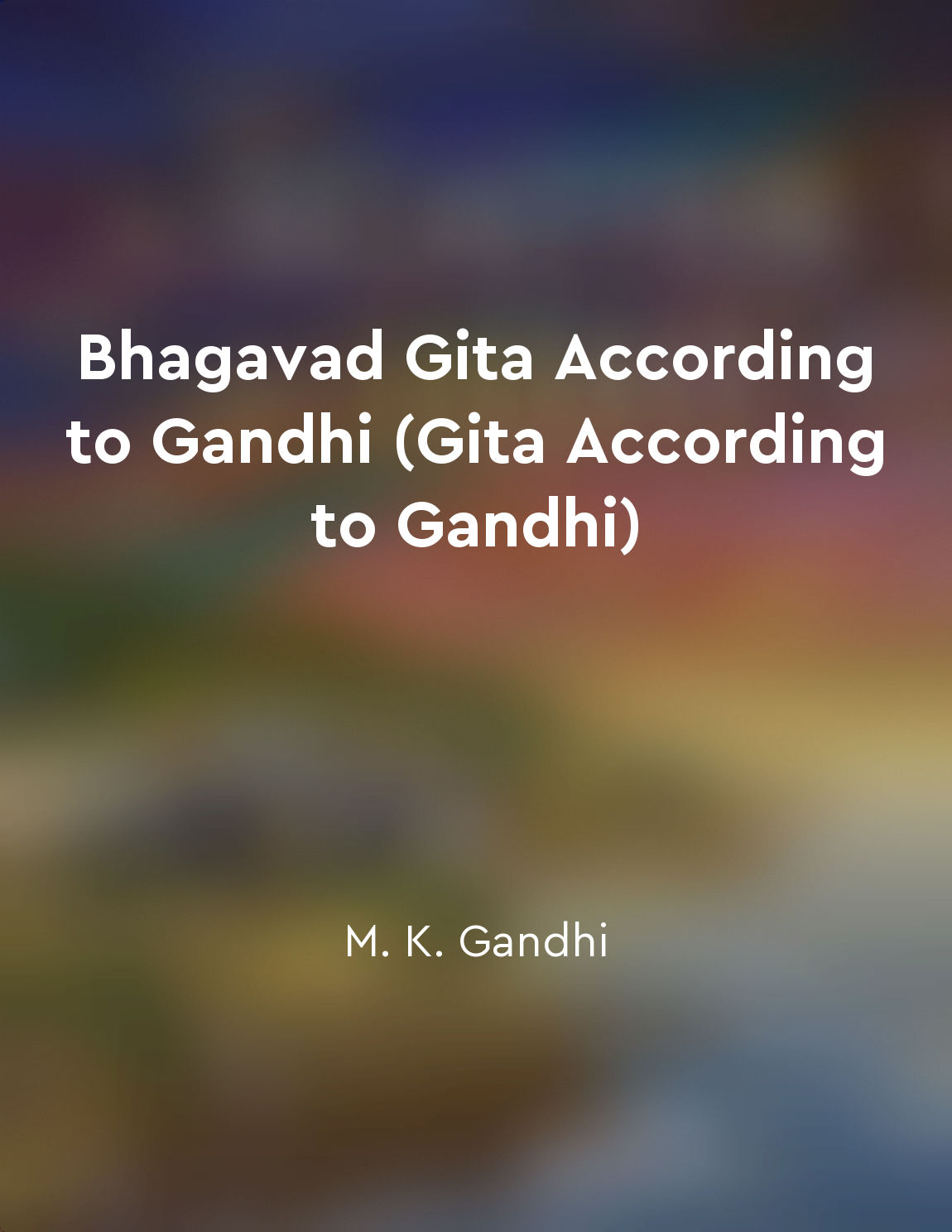Nonviolence from "summary" of Shrimad Bhagwat Geeta - Gita Saar (Hindi) 2020: भाग 6 by पं. रवि शर्मा
The concept of Nonviolence is deeply rooted in the teachings of the Shrimad Bhagwat Geeta. It emphasizes the importance of ahimsa, or nonviolent action, in all aspects of life. Nonviolence is not just the absence of physical violence, but also the absence of hatred, anger, and ill-will towards others. It is about cultivating a sense of compassion and understanding towards all living beings. According to the Gita Saar, Nonviolence is a fundamental principle that guides individuals in their thoughts, words, and actions. It teaches us to treat others with kindness, respect, and empathy, regardless of their background or beliefs. By practicing Nonviolence, we can create a more harmonious and peaceful society where conflicts are resolved through dialogue and understanding rather than through force and aggression. Nonviolence is not a sign of weakness, but rather a sign of strength and moral courage. It requires us to have control over our emotions and impulses, and to respond to challenging situations with patience and wisdom. By embracing Nonviolence, we can overcome our own inner demons and cultivate a sense of inner peace and harmony. The Gita Saar teaches us that Nonviolence is not just a personal virtue, but also a social and political imperative. It calls upon individuals to stand up against injustice and oppression, and to work towards creating a more just and equitable world for all. Nonviolence is a powerful tool for social change, as it has the ability to transform hearts and minds and inspire others to follow the path of peace and righteousness.- The concept of Nonviolence in the Shrimad Bhagwat Geeta is a call to live with compassion, integrity, and love towards all beings. It is a reminder that our actions have consequences, and that we have a responsibility to act in a way that is conducive to the well-being of ourselves and others. By embracing Nonviolence in our lives, we can contribute to the creation of a more peaceful and harmonious world for future generations to come.
Similar Posts
Indian philosophy has delved into complex metaphysical questions
The philosophical tradition in ancient India was marked by a deep engagement with complex metaphysical questions that sought to...
Embracing emotions allows for authentic expression
When we allow ourselves to fully embrace our emotions, we open the door to authentic expression. This means acknowledging and a...
Nonviolent communication involves expressing feelings and needs
Nonviolent communication is a process that involves expressing our feelings and needs. This method allows us to communicate in ...

Strive for selfrealization
The Bhagavad Gita teaches us that the ultimate goal of human life is to realize the true self. This realization is not merely a...
Conflict can be resolved peacefully through effective communication
When conflicts arise, we often find ourselves struggling to navigate through the turbulent waters of emotions and differing per...

